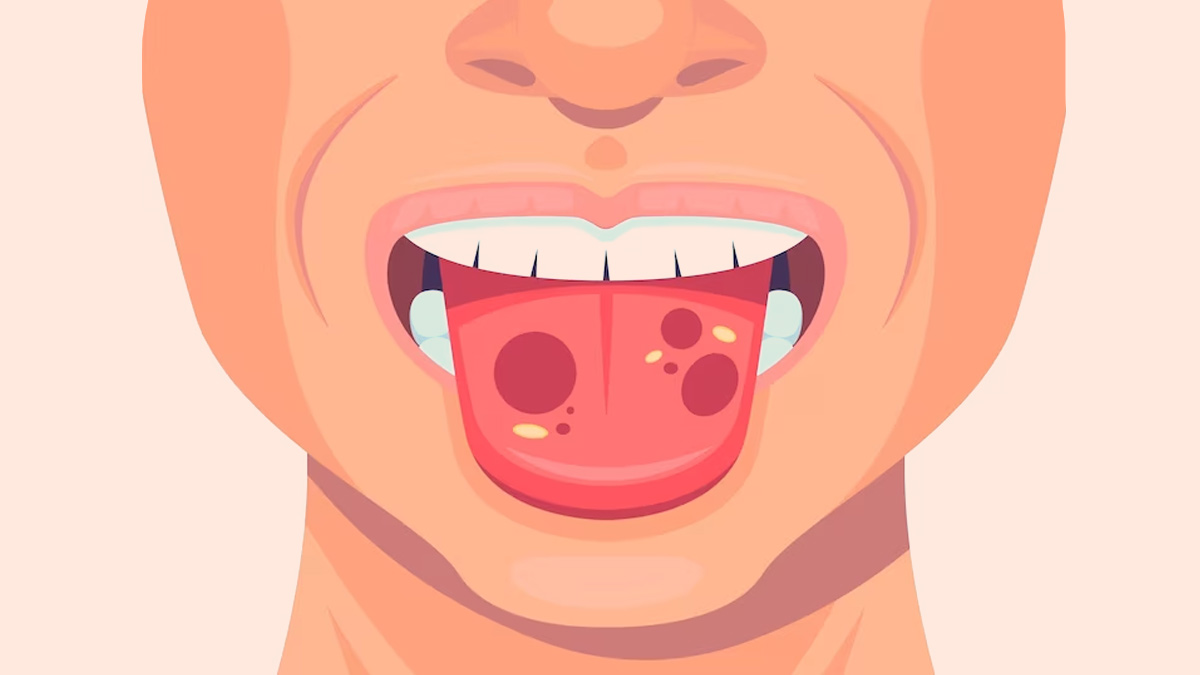Have you ever felt anything odd on your tongue? Inflammation or swelling of taste buds may cause discomfort experienced during eating. Swollen taste buds, also known as inflamed papillae, can cause discomfort and interfere with one’s ability to properly taste foods. These microscopic structures on the surface of the tongue sense sweet, salty, sour, and bitter flavours.
We can guess the prevalence of taste related disorder from the fact published in the National Institute of Health is that around 200,000 Americans seek treatment each year for taste-related problems. Let’s try to understand the origin of this condition and how to treat it.
Also read: A Dental Expert Shares Whether Electric Toothbrushes Are Really Worth The Hype
Causes of Swollen Taste Buds
According to Dr Shruthi Manjunath, Consultant ENT, Apollo Clinic, Indiranagar, some of them include:
- Hot and Spicy Foods: Consuming very hot or spicy foods can irritate and cause swelling of the taste buds
- Acidic Foods and Beverages: Frequent consumption of acidic foods and drinks, like citrus fruits and sodas, can lead to irritation and inflammation.
- Poor Oral Hygiene: Inadequate brushing and flossing can lead to bacterial growth in the mouth, affecting the taste buds.
- Oral Injuries: Accidental biting of the tongue or burns from hot foods and beverages can cause temporary swelling of the taste buds.
- Infections: Viral or bacterial infections, such as oral thrush or a common cold, can also lead to swollen taste buds.
- Nutritional Deficiencies: Lack of essential vitamins, especially B vitamins and zinc, may contribute to this condition.
- Allergic Reactions: Certain food allergies or reactions to oral care products can cause inflammation of the taste buds.
- Medical Conditions: Some underlying health issues, such as acid reflux, can lead to swollen taste buds due to the constant irritation from stomach acid.
How to Cure Swollen Taste Buds
It is advisable to brush your teeth at least twice a day and floss regularly to reduce bacterial growth and inflammation in your mouth. Temporarily eliminate hot, spicy, and acidic foods and beverages from your diet until the swelling subsides. Also, eating cool, bland foods can provide relief. Yogurt, ice cream, and smoothies are gentle on your taste buds and can help reduce inflammation.

Most importantly, drinking plenty of water helps cleanse the mouth of irritants and bacteria, promoting healing. Gargling with a saltwater solution (1/2 teaspoon of salt in one cup of warm water) a few times a day can help reduce swelling and fight infection. Ensure that you’re getting enough vitamins and minerals, especially B vitamins and zinc, which are crucial for oral health and healing.
“If your swollen taste buds persist or are accompanied by other symptoms, it may be necessary to seek medical advice. Persistent issues could be a sign of an underlying condition that requires professional treatment,” Dr Manjunath concluded.
Also read: A Dental Expert Shares Whether Electric Toothbrushes Are Really Worth The Hype
In most cases, swollen taste buds are a temporary issue that will resolve with home care and adjustments to your diet. However, paying attention to oral hygiene and avoiding known irritants are key steps in preventing recurrence. If you suspect that your condition is linked to an allergy or a more serious health issue, consulting with a healthcare professional is essential for appropriate diagnosis and treatment.




You must be logged in to post a comment.